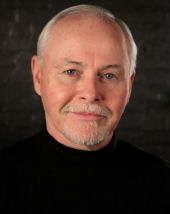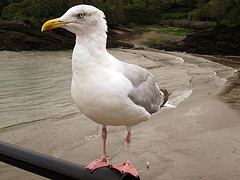Clowning and Human Evolution
Posted: 24 November 2014 Filed under: Ideas, Inspiration, Learning | Tags: clowning, pleasure, spymonkey Leave a commentFrom Spymonkey to Actual Monkeys
I did a clowning course with Spymonkey in September and I am still absorbing the week (it was great, go and do it). My main note was to show my pleasure more, which is not surprising to me. I used to be really shy, and I still get shy in large groups sometimes. Performing standup and improv helped me to change that a lot, but it was not my habit to show emotions freely. So it was a big lesson to learn that when I started and I’m still working on it. I used to find the idea of showing emotions on stage terrifying, and it can still be intimidating but overall I’m grateful I get the chance to practice it and do something that I love. It’s really useful for characters and its fun to explore that on stage.
Showing my pleasure. That made me think about people I have seen sharing their pleasure. All the great teachers I have had, at school and later, all the best speakers and performers- they all obviously love what they are doing and love to share it. It’s a good path to follow.
What does this have to do with human evolution?
I read an article in Scientific American Mind (Vol 25, No.5) called Let’s Talk, that made me think about how performances work. It’s about the common rules of languages across the world and what they tell us about human communication.
One difference between human and animal communications is that animals rarely require a response. For example, if a chimp shouts an alarm call it doesn’t expect another chimp to reply, but a lot of our communication directly requests a response. “Hello, how are you?”. If you don’t get a response you get confused or annoyed at the other person for ignoring you.
But I think sadly a lot of communication is mixed up in real life. Not a lot of our cultural dialogue is about vulnerability and honesty so we learn to close it off. People drop hints and talk sideways then get surprised when nobody understands. Then we go to the movies or a theatre to see raw honesty played out in front of us. That’s back-to-front way of doing things.
So in my humble opinion, combining the teachings of Spymonkey and current linguistic evaluations of the true nature of human communications, I deduce that showing pleasure is a really pure form of communication. It’s saying “I am enjoying this,” and inviting the audience to come along for the ride. It’s weird and its humbling to do something that is essentially asking people to accept and trust you, as you are. It’s not always comfortable but it is always effective.
What’s your pleasure?
PS
(I also love story-telling so check out my Epic Tales workshop this Wednesday in London. Only £5 for a taste of my secrets. Full details here.)
Comedy Duos: Star Wars – The Power of the Straight Man
Posted: 17 October 2014 Filed under: Ideas | Tags: comedy, duos, star wars 4 CommentsThe first in a series of musings on comedic duos.
R2-D2 and C-3PO. I was thinking about why I prefer the original movies to the later prequels, and the difference in these two is a good example. I won’t go into a lot of detail about episodes 1-3, that has been covered in detail elsewhere, but I will pick out an incident that exemplifies why I don’t like the prequels.
There is a scene where the two robots are going through a factory and R2-D2 knocks 3PO into the works and they get knocked about. 3PO gets his head pulled off, later it falls down into the floor and he says “I’m beside myself!”. It’s funny because its true figuratively and literally. It’s also not funny because its meta and you can see the scriptwriter being clever. Personally this is the kind of meta-humour that really turns me off in improv too, its always a distancing from what is going on.
On the other hand the comedy in episodes 4-6 comes soley from their relationship and personality. They were originally planned to be bickering bureucracts, that dynamic survived their transformation into droids. R2 is headstrong and not afraid of anything, 3PO is anxious and terrified of everything. They are the perfect odd couple.
The really great thing about them is that the audience can’t understand R2, which is a pretty brave thing to do if you think about it. 3PO is the straight man, R2 is the quick-witted one who always has a cheeky comeback, and the audience rarely finds out what it is. Imagine an episode of Morecombe and Wise where you had no idea what Morecombe was saying, only Wise’s reactions would sell the humour.
It also makes me think about scenes in gibberish where one character can speak normally and translates or reacts to the other person. I know I always prefer it when an improviser reacts as if they can understand because it adds a whole new texture to a scene.
Which reminds me that the straight man role is incredibly powerful in comedy. You can make anything funny just by having a characteristic reaction to it. It makes me think about sudden reactions and how they can totally flip the meaning of the last sentence in a scene.
Engineering and Improv
Posted: 20 June 2014 Filed under: Experiment, Ideas | Tags: creativity, engineering, group mind, group work, yes and Leave a comment
I think this study is great. It shows that innovative engineering breakthroughs tend to come in small steps, rather than in large leaps.
By recording conversations and analysing them they found that brainstorming sessions work on the principle of ‘Yes and’. One person proposes something, which sparks off the next step from somebody else, and it continues until they reach a completely new idea. An idea they could not have come up with on their own.
That’s group creativity and I think it’s fascinating to see proof of it in technical fields. It is something that I already believed, that ‘creative’ and ‘scientific’ fields are just overlapping parts of the same human endeavour- an enquiry into how the Universe works and what we can do with it.
Stories and Their Audiences
Posted: 12 March 2014 Filed under: Ideas Leave a commentA great article about improvising stories and how to connect to the audience. Concise.
Practicing improvisational comedy for a couple of years has granted me the experience of created hundreds, if not thousands, of stories alongside my friends. Along the way, I’ve stumbled upon some principles of storytelling help me to elicit strong reactions from an audience, whether it consists of a two or fifty people.
Make the audience care about your character. If the audience can’t relate on some basic gut level to your character, then everyone is going over their weekend plans in their heads instead of listening to what you have to say. Give your character a very human quality, so they feel like they know the character; ideally, they feel like they have hung out with your character for the duration of the piece. Give us the gritty; others will enjoy ticking off a checklist of virtues and vices
Include enough details to relay your experience on a visceral, nearly-tangible…
View original post 193 more words
You Matter
Posted: 10 March 2014 Filed under: Inspiration | Tags: comedy, eric thomas, fawlty towers, motivation Leave a commentI watched a video on YouTube by Eric Thomas, the hip-hop preacher.
He said something unusual. To paraphrase, he said:
“You matter. I’m saying that because some of you may never have heard that.”
It’s strange that people don’t say that more often. I know people like to say it with actions, but there is something powerful about hearing that raw phrase, ‘You matter’. There are two things that strike me about this, the power of the obvious and the power of the hidden.
The Obvious
This is something I have learned. People avoid being direct and obvious, so playing a character that is obvious is very unusual and almost always very funny or very touching. Usually it can be both.
Basil Fawlty in Fawlty Towers. His reaction to everything is to freak out, you know he is going to freak out and yet it’s still funny. Him trying to hide things from Sybil is also funny because you know that she will find out. I think that series plays the with tension of hiding and revealing excellently. His well-known interaction with German guests is a great example of the power of the obvious. He says exactly what he’s doesn’t want to say and winds himself up into a ridiculous frenzy. Imagine that scene where he says nothing and maybe just made jokes outside their earshot. Absolutely no drama.

Credit: Michael Dorausch
CC BY-SA 2.0
The Hidden
It’s hard in the beginning to play characters that hide what they want, because often people don’t pick up on it. I think you need to work with other improvisers for a while to learn how to read each other. It’s not impossible though, its very close to how we live. Hiding what we want from ourselves or others.
You could try this experiment, stand in front of a mirror and say to yourself “You matter.” Then see how you feel about that. Is it weird and uncomfortable? Is that because you don’t often tell yourself that you matter?
If you aren’t positively acknowledging yourself, then what are the hidden things you say to yourself instead?
In Conclusion
Watching random videos on Youtube is a great way to find new inspirations. Why was I listening to a hip-hop preacher? That doesn’t matter. What matters is taking something fascinating away from it.
More importantly: You matter. Just because you might not say that to yourself or hear it a lot doesn’t make it less true. Especially in a creative field like improvising drama and comedy, your voice matters.
I Like Museums
Posted: 25 February 2014 Filed under: Ideas 2 CommentsI like museums. I just realised a particular reason this lunchtime. I’m working in the back office of a museum at the moment and I headed out to the exhibits for a break. It was immediately relaxing because I just started wandering and peering at stuff, whereas I don’t feel that freedom when I walk out from an office into the street. I was allowed to be.
If you walk around the street peering at things like the architecture and objects around you, then people assume you are a tourist. That or they follow your gaze because they assume you are looking at something unusual. Yes, I am looking at something unusual, The World. There is only one of it.

Look at it.
Credit: Flickr- garlandcannon CC BY-SA 2.0
It is strange that we create specific zones where we engage with the world. I feel the same way when I watch a movie, I become more sensitive to the ambient sounds of locations like pubs and train stations. When I am actually in those locations I don’t hear 1 percent of that information. Unless I stop and listen. Then I hear it all and it passes through me like the wind rustling trees.
That’s what makes things come alive on stage as well. When I stop and consider the imaginary terrain and the events around me I am drawn into it more. It’s fun.
I like museums because they are a socially acceptable place to walk around peering at stuff. I like improv because it’s a socially acceptable place to walk around being affected by stuff.
The Importance of the Boredom Threshold
Posted: 24 February 2014 Filed under: Ideas, Learning | Tags: boredom, Dylan Emery, exercises, New Choice, rehearsing 2 CommentsI have a vivid memory of one of my very earliest improv workshops. It was a seven-day intensive class taught by Dylan Emery, culminating in a performance of an extemporised musical. I look back on those days with great affection. Due to the fact that I had no idea what improvisation was, I made mistakes with greater confidence than I ever have since. It was the steepest learning curve I have experienced in my life.
During one session, Dylan had noticed a tendency (which, after all these years, I have yet to overcome 100 per cent) of rehearsing my words in my head before allowing them out through the front of my face, so he side-coached the scene by yelling out ‘New choice!’ after everything I said. Everything. The great thing about this was that I was unaware that ‘New Choice!’ was a well-worn shortform game and exercise designed to take you to an uncensored and unprepared state of mind. But in my ignorance, I simply assumed that everything I was saying was wrong, and that he was discounting every line I came up with in an attempt to steer me towards the perfect line. The memory of myself sweating and struggling, thinking to myself, ‘What on earth does he want me to say?’ makes me smile now. But eventually I reached the end of the list of things my brain could think up in advance, and Dylan was able to coax something genuinely spontaneous from me, perhaps for the first time in my life.
I was thinking back to that episode the other day after running a rehearsal with Luke. It’d been a while since I’d run a rehearsal, so beforehand I sat down and prepared ten different exercises to help us approach our chosen topic, which happened to be ‘creating strong initiations’. I wanted to make sure we had plenty to do, and that we wouldn’t get bored. At the rehearsal, we blasted through these exercises, and each one gave us a little glimpse into a particular technique, a way of thinking about how to create strong initiations.
But afterwards, I couldn’t help but think that we’d have achieved more if I’d just picked one or two exercises and we’d drilled them continuously for two hours. For me, exercises like ‘New Choice’ and ‘Endless Box’ only seem to work if they go on longer than I want them to. In fact, I often find that it is necessary to get bored of an exercise – to go through and past that moment when I’m starting to wonder what the purpose of it is – in order to reach the point where the rational part of me has entirely given up, and I’m learning with my instinct.
So while it’s fun to come up with lots of different exercises – which might be useful if I were introducing a new group to a range of things for them to go away and practice – I’m learning the value of taking a single idea and pushing it just a bit further than my comfort zone allows. Everything was like that when I was first starting out, and it was amazing.
How to Coach Yourself
Posted: 21 February 2014 Filed under: Ideas, Learning | Tags: coaching, harvard business review, HBR Leave a commentI read a great blog on the Harvard Business Review Site, all about how to hear useful feedback from criticism.
Everyone finds it difficult to listen to feedback, because emotional triggers overwhelm the process of listening. That is obviously true and I notice that in myself and others all the time.
This is important because if you want to get better at performing you need to get feedback from somewhere. In my experience, clear and specific feedback is very difficult to come by, especially in comedy or improv. Even really perceptive teachers might only see you for one workshop, so it’s hard to get the kind of long-term coaching that can point out common habits of yours. Which is why I found changing my attitude to feedback fundamental to learning more. I’m the only person that can invest in my long-term growth as an improviser and performer. I can’t make other people get better at giving feedback, but I can get better at hearing feedback.
Here are the pointers that I recognise most in myself.
Three Triggers
Truth- I find this comes from audiences or improvisers who have different tastes. Especially when people are new to improv or have only seen one side of it. It’s tempting to discard an audience member’s opinion because he or she hasn’t done the same training, but I need audiences to be a performer.
Relationships- This is true, also connected to audience members again. I think when I started I immersed myself in improv so tended to listen to other improvisers or teachers more, whatever they said. It took a while to learn how to filter advice from people I look up to. They are human too.
Identity- For me, as far as improv, this was the largest trigger. I used to be intimidated by physical work beyond all reason, so getting feedback on that froze me up and brought up a lot of self-doubt. Now I choose to work on my weakness I find it less scary. I want to get better, so it makes sense to get the most feedback there. Otherwise it’s like polishing the toes of your shoes and letting the rest fall apart.
There are a couple of the steps which I want to expand on, because you can use them on yourself. We give ourselves feedback all the time.
Six Steps
1. Tendencies- This is a big one. We all pick up habits that help us, then carry on doing them even when they start getting in the way. I used to argue a lot, I loved engaging in debates about political or philosophical points. I got bored but I kept some of that habit around when taking feedback. It’s tempting to prove somebody wrong if they say something that doesn’t appear right at first, but I get more out of listening to their point of view instead of repeating myself. Telling somebody they are wrong will never make me a better improviser. Considering a different point of view might make me a better improviser. It’s just being practical.
3. Sort Towards Coaching. This is one of the most important things, for life. There is a difference between evaluation and coaching.
Evaluation just tells you somebody else’s opinion. Coaching tells you something you can do, an action that you can take.
When I started performing I heard everything as evaluation. That’s a dead end. That just tells you where you are, it doesn’t tell you how to get anywhere.
I was in a clowning class and we did a simple movement and the teacher noted I took the least amount of risk doing it. Back then I just took it as personal trait. When I learned how to translate that into action it blew my mind. The action is taking more risks. If I feel stuck in an exercise, I purposefully take a risk and find something new. Because it isn’t a habit of mine, I am guaranteed to find something new by pushing it. It’s so obvious and yet so genius.
Decent teachers translate that for you, I remember that Mark Beltzmann told me to take more risks. Not everybody understands the impact difference between “You don’t take many risks” and “Take more risks”, which is why as a performer you need to learn how to do that.
Coaching Yourself
I think all the tips in the article are great, but for coaching yourself learning how to understand your reactions and listen to them is most important.
You might find it useful to note how you react to difficult shows or exercises, then see if you can sort that into coaching. Instead of defining yourself by where you are, look to where you want to be, and come up with actions to get there. If you don’t like singing, maybe you want to sign up to a singing class so you can practice it without having to improvise at the same time. Maybe you just don’t like singing. It’s the same with physical work or any other part of improv, there are always places you can go to isolate and practice a single skill.
If you tell yourself you are rubbish at a certain improv game, that could mean that you want to understand it better and need to practice it more, or it could mean that you just don’t like that game. Neither one is better or worse, they are just facts. Taking the time to treat your inner signals with respect and understand them leads to increased awareness and confidence.

Listen
Credit: Catherine Singleton CC BY-SA 2.0
Seagulls: Immersion and Awareness
Posted: 24 January 2014 Filed under: Inspiration Leave a commentI am temping in Westminster at the moment, on the 5th floor so I can see out over the chimneys and aerials. I was looking out the window this lunchtime and I saw a seagull waddling down a grey slate roof. I wondered what it’s like to be a seagull.
Specifically I wondered what it is like to be a seagull on the Thames, bobbing about in the cold water, then wheeling up into the air and swooping down onto the geometric coral of the Westminster rooftops. The roofs of Westminster are a desert, with gulleys that harbour bin-bags of occasional delight for a scavenger.
That is a pretty interesting transition.
When I look out, I see a distraction from the mundanity of a quiet afternoon, perhaps the seagull sees respite from the struggle for food. Does a seagull wheeling down onto a rooftop feel like a worker heading into the tea-room for a sit down?
Life is filled with boundaries and transitions.
In daily life we often go through these boundaries without noticing. The rush hour is a different place than my bedroom at night, but I rarely pay attention to how my state changes during the day.
It’s easy to miss this on stage as well. If you are having to create your environment as you go then you can’t completely be influenced by it. But you can be more aware of how you are affected, and then use that to find more nuance on stage. I think next time I get to play a bird I will notice the difference between being on land or in a tree. I think it’s more dangerous to be on the floor as a bird. I will feel safer in the trees as a bird.
I also think playing games around this in rehearsal is a good way to open up that nuance in performance. If you can play at being a deer in the woods and the same deer crossing a road you can see that a deer isn’t just a deer. A wolf in its pack is different from a lone wolf.
You might want to notice these moments over the next few days. How does your posture change when you go through these boundaries? For example coming in your front door, or getting on a packed or empty carriage. What expands in you when you move into a different environment and what contracts?
There is a lot of creative fuel to be found in the quietest moment of opening a window and hearing traffic.
Interview with Bill McLaughlin
Posted: 16 January 2014 Filed under: Interviews, Workshop Leave a comment Bill McLaughlin studied and worked with Del Close in Chicago and has performed and taught in New York and Philadelphia over the past 25 years. I had a chat with him to see what makes him tick and find out about the teaching he’s bringing over in March.
Bill McLaughlin studied and worked with Del Close in Chicago and has performed and taught in New York and Philadelphia over the past 25 years. I had a chat with him to see what makes him tick and find out about the teaching he’s bringing over in March.
So, how long have you been doing improv?
Since 1977, so about 37 years, I moved down to Chicago then. I’m from the Philadelphia area originally and I went out there to study theatre. Professors I had were from the Midwest and they had told me about Northwestern University and the Goodman Theatre out in Chicago, and I thought this sounds great and my sister lives out there so I thought I’d go and investigate.
I had never seen an improv performance, and she took me to a show and that was it, I was like a kid in a candy shop, that was that.
It was in a small little club and they were doing short-form, and what really caught my eye is that you could be or do anything. They did a series of different structures and games, typical short-form stuff. I noticed that, people got to be so many different things and deal with so many different situations, as opposed to a play where you audition and if you don’t look like the plumber from next door you won’t be that person. I saw the opportunity to be whatever you wanted to be, so if I wanted to be a gangster or a cowboy I could do it, just a range of opportunity there and the fact it was playing. Just playing and using your imagination. I had been doing that naturally for years, I just thought ‘Wow look people actually do that on stage!”
That’s interesting, I never thought about how casting in acting can limit what you get to do. Whereas in improv you get to choose all the time.
Exactly. It’s your world and you are the creators creating your world and anything you want to be in it. That immediately attracted my attention, the challenge of being in the moment was so amazing too. Plays are wonderful I love doing plays and doing theatre, but it was a completely different level I saw and I thought I’ve got to push myself to do that.
And did it feed back into your acting?
I tell people, one of the things it did for me as an actor, it made me totally aware of what was going on at any minute. As an actor you have your lines, your character, whatever else is happening in the play you have to be aware of, but you are not focussed on it, its already written- its already taken care of. With improv you are never away from what’s going on, even if you aren’t in the scene that’s going on with your partners, you might be needed at any moment.
It made me so aware in acting, whether it was working or not, I felt this spontaneous connection to what was happening, I was in the moment even if it was a scripted play.
They use improv as an acting exercise, but to take it up to the level where you are absolutely responsible for it, you are not doing an improv exercise to be emotional or to stretch some character stuff, then you absolutely are completely responsible for what’s going on. So you have to be aware of everything: what are we connecting to, is there a storyline here, is there a game between us? There are so many levels. It absolutely pushes your intellect, you have to bring your A-game, you have to play at the top of your intelligence as they would say at Second City.
What was your journey with improv?
I was in Chicago till the end of 79-80, we moved to New York and established a theatre, I was with this group but the director died and the group fell apart. I moved onto a group called the First Amendment, which was a much more freewheeling and extremely talented group of people, it was extraordinary. That was the group I preformed with at the Edinburgh festival, and we managed to hang together till 1990, the director lost the space we were in, and by that time people were branching off doing separate thing’s and I had a partner, a brilliant improviser by the name of Joe Perce, and we started doing corporate entertainment.
You’re doing a trade show, or product launch, all very corporate, but they were looking for people who could write a show and change it on the fly, who could deal with executives and have that flexibility to throw ideas that the client would like, and we had to involve. Again it’s your improvisational skills, you’re not just doing a show, you have to be informative and entertaining as well. It forced you to push your skills to another level, because I had the improv background, what ever the challenge is I will find a way to do it. I still do it.
I like to be a complete professional at that, I can go in and go to a corporate meeting and I know exactly what they are looking for but at the same time I am relaxed in the moment. Whatever comes up I say “Yeah!”
Sounds like improv really influenced you and is fundamental to how you approach life.
Exactly. Your brain has to adjust to the idea that you cannot predetermine what’s going on, you have to throw your expectations out the window sometimes, because things will change.
Yeah in improv, things don’t always work, there are those moment that aren’t the most brilliant, but you don’t worry about them. You learn from your success. That was one of the things Del Close used to teach, the only thing you can learn from your mistakes is not to repeat them, learn from your success and add to it. That builds your success and your strength.
You learn from the positive, and you have to recognise what stops you, what blocks you, what stands in your way- that’s great try not to do it again. But when I’m teaching that’s what I jump on, when I see the light go on for a student and they’ve done something that worked really well I’ll make sure they take a picture of it in their mind. Don’t lose that. That wasn’t an accident, what you did was actually just a really good move.
I like that kind of teaching, it’s about giving them the power. You didn’t give them anything, you just pointed it out for the student. They have the goods.
Yes! You mastered the technique!
A moment like that for me was when I was studying in Chicago at Second City. Whoever was playing with me was my boss and kept accusing me of making mistakes and I would ‘yes and’ it, I would say “Yeah when I turned on the photocopier that’s when the fire started.” I was almost ahead of my boss in showing how incompetent I was.
Del stopped the scene and said, “That’s what I was talking about when I said Yes anding.” And the feeling it gives you is that “Yeah I have this tool and I figured out how to use it!”
Those moments in improv you feel like you’re floating 3 feet off the floor.
Do you teach because you want to pass on that experience to others?
Exactly! Well first of all when I teach I’m entertained all the time. And I always have to learn, what can I do to take my teaching to the next level? It forces me to stay a student of what I do, I have to go out and see shows, see what’s changing, what’s evolving in improv. I go see shows up in New York and Philadelphia and see what people are doing because creative people are coming in and finding new ways to express improvisation and theatre. But yes, also teaching is giving people what I’ve had.
Last summer 3 of my students went to perform at the Slapdash Festival, Safe Weird (check our interviews with Safe Weird members Kaitlin and Rob & Andrew). I was talking to Andrew last night and he says he thinks about England every day, and he has to get back there some time, just the adventure of it. For me the places I went performing improv, I performed at the Edinburgh festival. With theatre I toured in Europe doing different things like Russian constructivist theatre. I love the adventure of taking a challenge and seeing where it takes you.
For me it’s always been where I am, who I’m with and what I’m doing. You’re meeting people who are like you. They raise your game, they raise your level of awareness and talent, and your enjoyment of it. So I love giving the adventure of it to people.
Even if they are just going to take a class and enjoy it, fine. If it makes you more confident getting up and speaking in your job, that’s great, because before that you didn’t think you could do that. So many students tell me “Before taking your class I had a hard time in conversation or a hard time with this.” I had a woman who could barely look or talk to anyone. When she finally let loose, because I set up the right environment where it doesn’t matter if you fail, by the end of it she revealed there was an incredibly intelligent person inside who could make some amazing choices. When somebody like that comes to you and tells you how much they appreciate what you did, what a reward that is.
I have a group of college students here I put together, they have only performed together a few times. I want them to perform more and get more experience, and hopefully they will go down into Philadelphia and take classes and get involved in the scene down there, or maybe go up to New York. I would love to see them push on with it and see them take that adventure.
Yes! It’s all about that adventure. That’s why it’s so good to have this international connection of people coming over. Do you have any words for people coming to take your workshop over here in London?
Be prepared to enjoy yourselves. I will stress generosity, bring that attitude with you. Bring that to my workshop.
There you have it! A lot of enthusiasm and adventurousness is headed our way in March. Bill is teaching his weekend workshop on devising formats in improv on the 22nd and 23rd of March. Find all the details and book here at the Nursery site.




